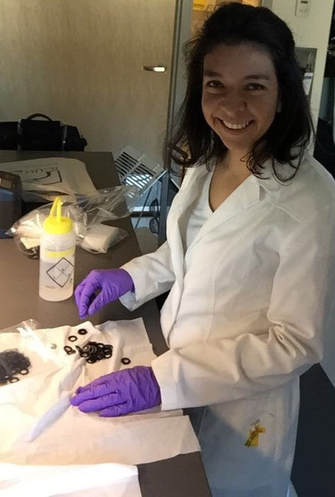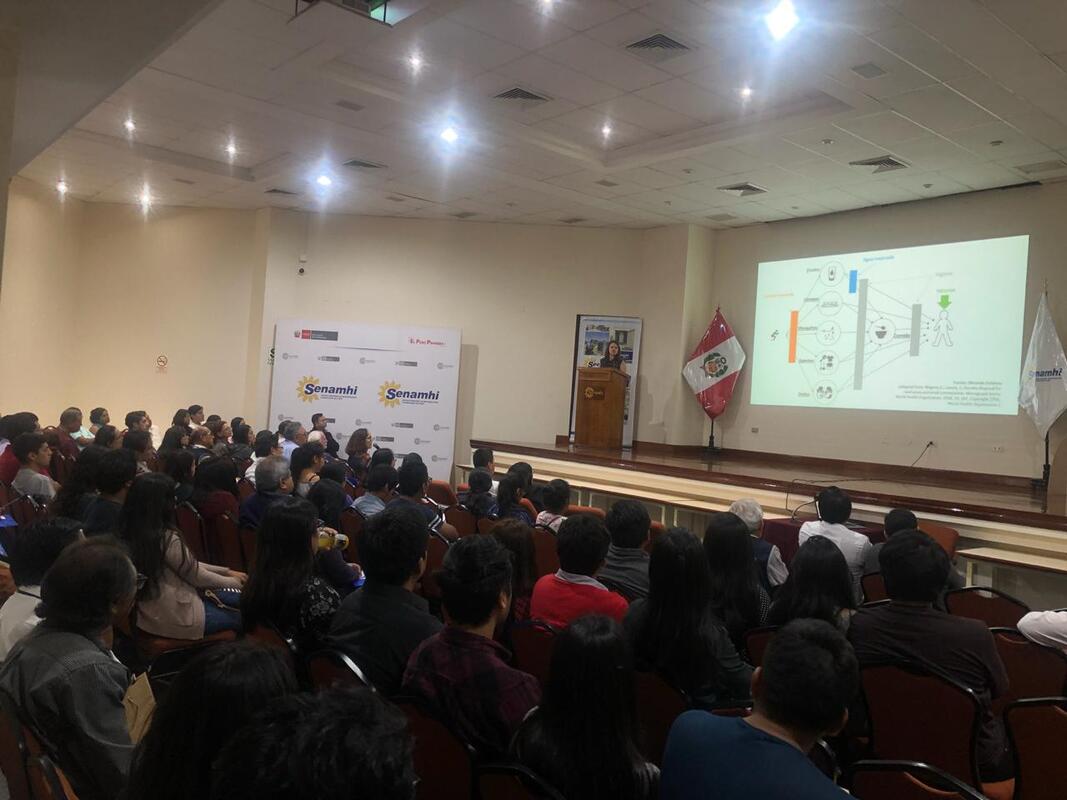Phase 2: Training Initiatives
Our goal is to expand the work done during the current period of our collaborative research and research training center for environmental health, GEOHealth Hub in Peru, with impact in neighboring countries of Ecuador and Bolivia as we expand our partner network and invite trainees from those countries. We bring together an exceptionally strong team of environmental health researchers from Universidad Peruana Cayetano Heredia (UPCH), Emory University, Johns Hopkins University (JHU), and Universidad de Chile (U. Chile), along with a network of non-profit and governmental partners with extensive training and research experience in Peru. Our proposed training activities will support the work in our paired renewal proposal (U01) and increase research capacity training in the country. Our overall objective of research study is to build capacity in ambient air pollution (AAP) research in Peru and study the association between AAP and cardiovascular and respiratory conditions, as well as COVID-19, and Alzheimer’s disease (AD), two diseases where the association with AAP is not as well established. The linked U01 research grant proposal describes in detail our proposed research on the short and long-term effects of AAP on cardiorespiratory disease, Alzheimer’s disease, and COVID-19 in Peru. We also plan to study whether COVID-19 in Lima is associated with long- term cognitive deficits.
Our training programs will include annual short courses in Peru, Chile, and the USA, one-on-one mentoring in research to Peruvians investigators by US and Chilean faculty, and graduate programs in public health in Peru. Recruitment of trainees will be conducted in Peru, Bolivia, and Ecuador and their selection will be tasked to our Advisory Oversight Committee (AOC).
Our training programs will include annual short courses in Peru, Chile, and the USA, one-on-one mentoring in research to Peruvians investigators by US and Chilean faculty, and graduate programs in public health in Peru. Recruitment of trainees will be conducted in Peru, Bolivia, and Ecuador and their selection will be tasked to our Advisory Oversight Committee (AOC).
Support long-term graduate training programs
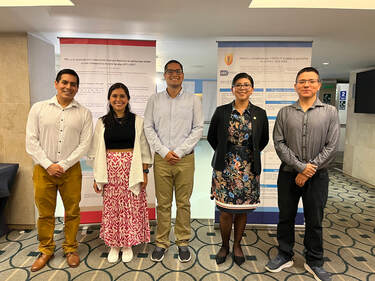
Support long-term, graduate training programs, around the scientific area of ambient air pollution (AAP) research in Peru, and its association with cardiovascular and respiratory conditions, including COVID-19, as well as Alzheimer’s disease (AD). We plan to fund full time master degrees and doctoral training at our partner institution in Peru. Specifically, we will: A) Fund promising young investigators to train in the Science in Epidemiological Research M.S. program offered by FASPA ; these trainees will be involved in each of the specific aims outlined in the U01 proposal.
Mentorship in research skills to Peruvian investigators
Provide individualized mentorship in research skills to Peruvian investigators. This goal will be achieved through one-on-one mentorship by senior investigators from the USA and Chile to junior investigators involved in our research teams in Peru. This 1:1 mentoring will occur in Peru, Chile, and/or the US.
Research Courses
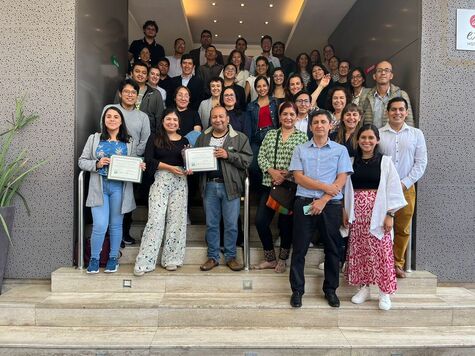
Offer short-term courses to a wide audience of health scientists and public health professionals from Peru, Bolivia, and Ecuador, in topics and research in the association between AAP and cardiovascular and respiratory conditions, including COVID-19, and Alzheimer’s disease (AD). We will offer an annual one-week environmental health course in Lima, Peru, focused on epidemiological study designs in environmental epidemiology, exposure assessment, and epidemiological analysis of data. Areas of focus will be aligned with our research; lectures will be given on air pollution, and its association with cardiorespiratory disease, Alzheimer’s disease, and COVID-19, and the epidemiologic designs used to study these associations. We will include training in ethical conduct of research, expert panels in policy decisions based in evidence, and career development topics. We will also offer fellowships to attend two weeks of advanced skills training at the well-established U. Chile Summer School (EIV) where we will sponsor courses in Environmental Epidemiology with focus on environmental factors associated with cancer, cardiorespiratory disease, and Alzheimer’s disease, and professional development workshops in grant proposal development, manuscript writing, and project management. In years 2025, we plan to offer competitive fellowships to attend the “Chronic Diseases in Low- and Middle- Income Countries (LMICs)” summer course at Johns Hopkins University. This course uses lectures and case studies regarding chronic diseases in low- and middle-income countries and cover a variety of topics ranging from how to evaluate effectiveness to how to conduct implementation-based research.
Phase 1: Training Iniciatives
Training is critical for building a sustainable capacity for environmental health research in Perú. Through our GeoHealth Hub planning grant we identified three key areas for environmental health research and training which comprise the three areas of focus of the linked U01 research grant proposal: indoor air pollution, outdoor air pollution and climate change. We offer short, medium and long term training opportunities to professionals from Peru, Ecuador, and Bolivia, that contribute to increase the interest and quality of research in the region.
Research Courses
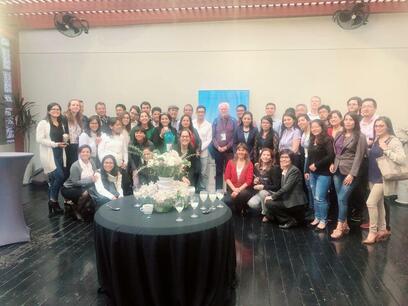
As part of our training initiatives, we offer an annual one-week workshop on environmental health in Lima for professionals from Perú, Bolivia, and Ecuador with instructors from Emory University, University of Georgia, Johns Hopkins University, Universidad de Chile, and Universidad Peruana Cayetano Heredia. This training course focuses on core topics of environmental health, i.e., environmental epidemiology, statistics, exposure assessment, and toxicology, as well as bioethics, and practical skills as STATA, study designs, and data management. It also includes case studies in environmental health, preferentially from Perú. This course was developed based on a successful three day training course we organized in Lima in 2014 (Click here for details - document is in Spanish).
A second training initiative is a an annual course in environmental health at the well-established Universidad de Chile Summer School (EIV). The GEOHealth Hub fully funds 5 qualified applicants yearly to attend two-weeks of environmental health topics on issues of environmental and occupational health, epidemiology and biostatistics with nationally and internationally renowned speakers. Students attending the EIV have the added benefit of attending courses on other public health topics offered in addition to those in environmental health. Content level is more detailed and taught at a more advanced level, so it is suitable for a student who attended the short course in Perú previously.
A second training initiative is a an annual course in environmental health at the well-established Universidad de Chile Summer School (EIV). The GEOHealth Hub fully funds 5 qualified applicants yearly to attend two-weeks of environmental health topics on issues of environmental and occupational health, epidemiology and biostatistics with nationally and internationally renowned speakers. Students attending the EIV have the added benefit of attending courses on other public health topics offered in addition to those in environmental health. Content level is more detailed and taught at a more advanced level, so it is suitable for a student who attended the short course in Perú previously.
Environmental Health Scholars
The Environmental Scholars Program supports young researchers to participate in ongoing research projects and gain research experience through an apprenticeship model. We expect these students to be actively engaged in data collection or analysis in these studies. Click here to see our Environmental Scholars during fieldwork activities in the region of Piura, Perú in 2016.
One on One Training
We fund one-on-one mentorships to Peruvian environmental health researchers by bringing investigators from Chile and the US to Perú. The goal with this model is to train local investigators, who are already engaged in research, in more advanced methods in environmental health.
Graduate Training
The GEOHealth Hub supports three students pursuing their PhD degrees at at Johns Hopkins University and the Universidad de Chile. Once required courses have been completed, trainees will identify a thesis in an environmental health topic of interest, and write a proposal for their research. The dissertation must be based on original research based in Perú, worthy of publication. Trainees undertake their research at a field in Perú where a program faculty member is conducting an environmental health project.
With a partnership from the School of Sciences and Philosophy and the School of Public Health, the GeoHealth Hub collaborated on developing a graduate program in Environmental Sciences with mention in Environmental Health at the Universidad Peruana Cayetano Heredia. The curriculum suits local research and programmatic needs and has started enrolling students on a yearly basis. More information HERE
With a partnership from the School of Sciences and Philosophy and the School of Public Health, the GeoHealth Hub collaborated on developing a graduate program in Environmental Sciences with mention in Environmental Health at the Universidad Peruana Cayetano Heredia. The curriculum suits local research and programmatic needs and has started enrolling students on a yearly basis. More information HERE

